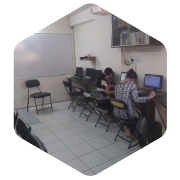Cost Audit is the verification of cost accounts to determine the accuracy of cost accounting records. Cost audit ascertains the accuracy of cost accounting records to ensure that they are in conformity with cost accounting principles, plans, procedures and objectives.
A cost audit comprises the following:
- Verification of the cost accounting records such as the accuracy of the cost accounts, cost reports, cost statements, cost data and costing technique.
- Examination of these records to ensure that they adhere to the cost accounting principles, plans, procedures and objective.
To report to the government on optimum utilization of national resources.
Objectives of Cost Audit:
Prospective Objective: Under which cost audit aims to identify the undue wastage or losses and ensure that costing system determines the correct and realistic cost of production.
Constructive Objectives: Cost audit provides useful information to the management regarding regulating production, economical method of operation, reducing cost of operation and reformulating cost accounting plans.Relevant Definitions:
Cost Audit:
Cost Audit is a system of audit introduced by the Government of India for the review, examination and appraisal of the cost accounting records and attendant information required to be maintained by specified industries.
If the Central Government is of the opinion, that it is necessary to do so, it may, by order, direct that the audit of cost records of class of companies, which are covered under sub-section (1) and which have a net worth of such amount as may be prescribed or a turnover of such amount as may be prescribed, shall be conducted in the manner specified in the order.
Cost Accountant:
Cost Accountant means a cost accountant as defined in clause (b) of sub-section (1) of section 2 of the Cost and Works Accountants Act, 1959 and who holds a valid certificate of practice under sub-section (1) of section 6 of that Act.
Cost Accountant in Practice:
Cost Accountant in practice means a cost accountant as defined in clause (b) of sub-section (1) of section 2 of the Cost and Works Accountants Act, 1959 (23 of 1959), who holds a valid certificate of practice under sub-section (1) of section 6 of that Act and who is deemed to be in practice under sub-section (2) of section 2 thereof, and includes a firm or limited liability partnership of cost accountants.
Cost Auditor:
Cost auditor means a Cost Accountant in practice, as defined in clause (b), who is appointed by the Board.
Cost Audit Report:
Cost audit report means the duly signed cost auditor’s report on the cost records examined and cost statements which are prepared as per these rules, including attachment, annexure, qualifications or observations attached with or included in such report.
Cost Records:
The definition of the word ‘cost records’ has been provided under rule 2 (e) of the Companies (Cost Records and Audit) Rules, 2014 which means books of account relating to the utilization of materials, labour and other items of cost as applicable to the production of the goods or provision of services as provided in section 148 of the Act and the Companies (Cost Records and Audit) Rules.
Relevant Provisions under the Companies Act, 2013:
Section 148 of the Companies Act, 2013:
Section 148 of the Companies Act, 2013 contains provisions relating to the cost records and cost audit applicability under the Companies Act.
As per Section 148, Cost Audit shall be conducted by the cost accountant who is appointed by the Board;
Rights of Central Government:
Section 148 (1) empowers the Central Government to direct the companies specified in the production of goods or provisions of service to include particulars relating to utilization of material or labour or other items of cost in the books of accounts of the company;
Section 148 (2) empowers the Central Government to direct, based on the net worth or turnover of the company, audit of cost records of the specified class of companies;
Rule 4 of the Companies (Cost Records and Audit) Rules, 2014:
Rule 4 of the Companies (Cost Records and Audit) Rules, 2014 contains the provisions relating to the companies which are liable to get their cost records audited;
It contains the list of specified companies, which needs to maintain the cost records, is provided under Table A and Table B of rule 3 of the Companies (Cost Records and Audit) Rules, 2014;
Applicability of Maintenance of Cost Records [Rule 3 of the Companies (Cost Records and Audit) Rules, 2014]:
As discussed, the definition of the word ‘cost records’ has been provided under rule 2(e) of the Companies (Cost Records and Audit) Rules, 2014 which means “books of account relating to the utilization of materials, labour and other items of cost as applicable to the production of the goods or provision of services as provided in section 148 of the Act and the Companies (Cost Records and Audit) Rules”.
Rule 3 of the Companies (Cost Records and Audit) Rules, 2014 contains two table namely
Table A – Regulated Sectors; and
Table B – Non-regulated sectors.
Cost records need to be included in the books of accounts of the companies being engaged in the production of goods or provision of service as covered under the table A or Table B and the total turnover from all its production or service in more than INR 35 crore during the preceding financial year.
In a nutshell, cost records are mandatory in the case following conditions are satisfied:
– The company is engaged in manufacturing goods or provision of services which are listed in Table A or Table B; and
– Total aggregate turnover of the company from all its production or service is more than INR 35 Crore in the preceding financial year.
Applicability of Cost Audit [Section 148(2) & Rule 4 of Companies (Cost Records and Audit) Rules, 2014]:
CG may direct to conduct audit of cost records of such class of companies having turnover or net worth as may be prescribed.
According to Rule 4 of Companies (Cost Records and Audit) Rules, 2014, Cost Audit shall be applicable to following companies:
|
Turnover |
Every company specified under Rule 3A in Regulated Sector |
Every Company specified under Rule 3B in Non-Regulated Sector |
|
Turnover from all products and services: |
Rs. 50 Crore or more |
Rs. 100 Crore or more |
|
Turnover from individual products or services specified for cost records under Rule 3: |
Rs. 25 Crore or more |
Rs. 35 Crore of more |
Non-Applicability of Cost Audit:
Cost Audit shall not be applicable in case of following companies:
The company’s export revenue exceeds 75% of its total revenue. The export revenue needs to be in foreign exchange; or
The company which is operating from the special economic zone;
The company which is engaged in the generation of electricity for captive consumption through Captive Generating Plant*.
*Note: The term ‘Captive Generating Plant’ shall have the same meaning as assigned to it in Rule 3 of the Electricity Rules, 2005.
Eligibility of a Cost Auditor:
Only a Cost Accountant can be appointed as Cost Auditor for conducting cost audit. ‘Cost Accountant’ means a cost accountant as defined in clause (b) of sub-section (1) of section 2 of the Cost and Works Accountants Act, 1959 and who holds a valid certificate of practice under sub-section (1) of section 6 of that Act.
From the above definition we can say that only a member of the Institute of Cost Accountants of India who has a valid certificate of practice can be appointed as Cost Auditor. Such member may be:
An Individual who is a Cost Accountant in Practice;
A Firm of Cost Accountants in practice.
Provided that no person appointed statutory auditor of the company shall be appointed for conducting the audit of cost records.
Appointment of Cost Auditor:
Cost Auditor shall be appointed by the Board within 180 days from the commencement of financial year.
Consent must be obtained from the cost auditor for conducting the Cost Audit.
After obtaining the consent, a Board Meeting should be held for the appointment of Cost Auditor.
Pass the Resolution at the Board Meeting and file the Form with ROC within 30 days or within a period of 180 days of the commencement of the financial year.
Form CRA-2:
Every company appointing the Cost Auditor must file a notice of such appointment through electronic mode in Form CRA-2 within a period of:
30 days of the Board Meeting in which such appointment is made or
Within a period of 180 days of the commencement of the financial year, whichever is earlier,
Submission of Cost Audit Report:
A cost auditor is required to submit his audit report along with his/ her qualifications, reservations, observations or suggestions if any, in form CRA-3 to Board of Directors of the Company within 180 days from the closure of financial year to which the report relates.
The Audit Report shall be filed with the Central Government within 30 days from the date of receipt of the Audit Report.
Relevant Forms:
|
Form |
Details |
Time Limit |
|
CRA-1 |
Format of Cost Audit Records |
Not Applicable |
|
CRA-2 |
Appointment of Cost Auditor |
30 days of the Board meeting in which such appointment is made or within a period of 180 days of the commencement of the financial year |
|
CRA-3 |
Format of Cost Audit Report |
Not Applicable |
|
CRA-4 |
Submission of Cost Audit Report |
30 days of receipt |
Penalty in case of Default in compliance with above provisions:
- Default on part of Company:
|
In case of Company |
In case of Officer of the Company |
|
In case of any default on the part of the company, it shall be punishable with the fine of an amount not less than INR 25,000, however, such fine cannot be more than INR 5 Lakhs. |
every officer, in default, of the company shall be punishable with imprisonment for a term up to 1 year or with the fine not less than INR 10,000, however, the same cannot be more than INR 1,00,000; |
- Default on part of Cost Auditor: In case the cost auditor is in default, he shall be punishable in the manner as provided under section 147 (2) to section 147 (4).











